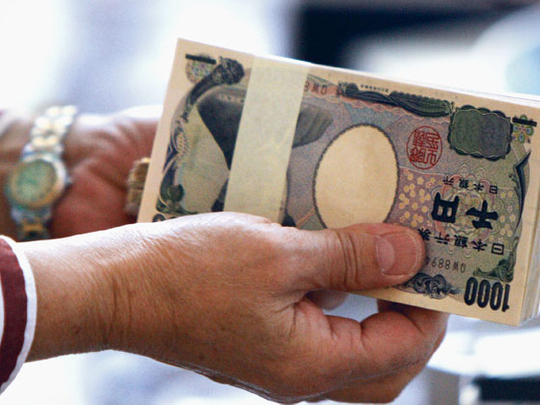
You can feel the sense of panic rising in perfect synch with the yen.
Will the Bank of Japan intervene to weaken it? Is Prime Minister Naoto Kan plotting action with lawmakers? What will happen to the economy as that mean, old dollar weakens and wreaks havoc on the nation?
Never mind that the economy was just as feeble when the yen was 125 per dollar as it is now at 84. Or that Japanese executives are a bunch of cry babies. Germans don't belly ache about exchange rates; they adapt and make money. Yet Japan is in crisis, we are told with growing drama. Growth is doomed, deflation is accelerating and all hell will break loose.
Time for a confession: My own sense of dread, divergent as it is from the masses, pertains to shopping. I have all this strengthening yen and nothing to buy.
Japanese stocks? Not with private industry waiting around for the government to throw it a lifeline — again. Not with unemployment rising, incomes falling and consumers sitting out this so-called recovery.
Sure, you could dabble in Toyota Motor Corporation, though that may be risky with the threat of future recalls hanging over the shares. There's also reason to wonder if China, the biggest auto market, can keep buying Japanese cars.
What to buy?
Consider the 60-mile traffic jam on a highway leading toward Beijing that has stranded motorists since August 14. Think about that next time you complain about congestion on the Long Island Expressway. Chinese want cars. It's more a matter of having enough roads to accommodate them all.
You could embark on the Philippine holiday you've been craving. Then again, given how pathetically security forces in Manila handled the deadly attack on foreign tourists last week, perhaps not. Peace-and-order concerns are always on your mind when you visit the Philippines. Yet eight members of a Hong Kong tour group dying in a hapless rescue attempt on a bus won't endear the nation to travellers.
The only way yen sales might help is if the Federal Reserve and European Central Bank act in concert with the BOJ. Such action isn't out of the question, yet the costs of intervention failing would be high.
It's a fair question whether the yen is as overvalued as the spot rate suggests. Deflation means the yen isn't as strong on a "real effective exchange rate" basis. Also, Japan is a trade-surplus nation. If it really wants a weaker yen, then it should work to reverse its trade figures. All this may inspire little sympathy in Washington and Frankfurt.
Japan could have spent the 2000s reducing regulations, tweaking taxes, raising productivity and supporting entrepreneurs. It could have opened its doors to more immigrants, upgraded its education system and worked to grab a bigger share of the lucrative Asian tourism market.
Instead, it obsessed about a currency that rose 27 per cent in that time anyway. Japan has had seven prime ministers since then, all fighting this losing battle. It's time to shop around for a new strategy.











